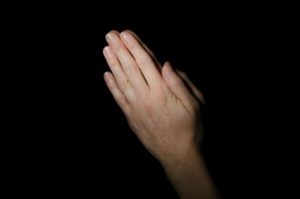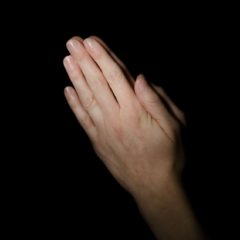trust
Trust

Second Sunday Of Lent
Fr. Mark Gatto
Date Preached: March 8, 2020
How often when you pray are you asking for something? Have you ever been upset with God when your
prayers were not answered?
George Bernard Shaw once said, “most people do not pray, they only beg.” We do not pray to get God to do what we want, we do not pray so that everything will work out as I have planned. That is not faith, but some sort of entitlement. The fact is that life happens while we are making our plans. The stock market falls, we lose our job, a project we were working on fails, a relationship is lost, we become sick, a loved one dies. Our world is facing that now with the coronavirus outbreak. All of our plans can be so quickly and easily pushed aside by the events and circumstances of life.
Then we can begin to have problems with God. Why did God do this to me? Why doesn’t God fix this?How is it that God ignores my prayer? How often I have seen someone who after some difficult loss or struggle in life stop praying, stop going to Church.
We need to move beyond an immature notion of prayer as a way to make life turn out the way I want it to be. The true purpose of prayer is to fall into God. To fall into the hands of God with trust and faith. For none of us knows for sure our future, none of us can guarantee what will happen in our lives. True prayer leads us into God so that our heart learns to trust. When our prayers are not answered it is up to us to discover how to live the new, unexpected reality that our life brings us.
Abram in our first reading is called by God, to leave behind his family, his homeland, everything that was familiar to him. He was sent to a new land where he knew no one. God offers a promise, that Abraham would become a great nation and his name would be blessed. But, there was no obvious visible sign that this promise would come about. In fact, late in his life he has no child at all. Today, we recognize that Abraham is seen as the father of faith by the Jewish, Muslim and Christian people all through the world.
In the Gospel story of the Transfiguration, Jesus brings Peter, James, John up a mountain and they experience the Transfiguration. This experience of the glory of God in Jesus would not take away the suffering and death that Jesus would face. It would not take away the failure, the betrayals, the fears that the apostles would face at the crucifixion of Jesus. But, that Transfiguration experience would have been a source of hope, a path to trust for them as they faced thisunexpected and terrible situation.
Our prayer is like being brought up a mountain by Jesus to experience the glory of God. But, prayer does not make everything turn out the way I plan, the way I want. Prayer allows us to continue to trust, continue in faith even when we face the unexpected turns of life. When we face suffering, loss, disappointments. Like Abraham, like the apostles, we embrace these new realities with trust.
Find time and place for prayer in your life. Time and place for silence to dwell in the presence of God. Time and place to come to church to celebrate the Sacraments. These moments are like following Jesus up the mountain. Our experience in those times of prayer will not make everything work out the way you want in life. But, it will help you to face with trust the unexpected, the unplanned events that hit us.
Prayer is not about certainty, prayer is not about planning my life as I want, prayer is not about controlling all that happens in my life. True prayer is about trust, about falling into the heart of God, about accepting all that life brings, including the surprises.
